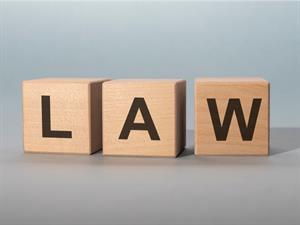
PUMPA - SMART LEARNING
எங்கள் ஆசிரியர்களுடன் 1-ஆன்-1 ஆலோசனை நேரத்தைப் பெறுங்கள். டாப்பர் ஆவதற்கு நாங்கள் பயிற்சி அளிப்போம்
Book Free DemoRead the text about the term "law".

What is law?
Law is a system of rules created and enforced by a controlling authority. A country or a community recognises the set of rules as regulating the actions of its members. Contract law involves agreements between people, organisations, and groups. Property law defines different forms of ownership in real and personal property. Trust law regulates use of trusts — arrangements through which property is managed by one person (or organisation) for the benefit of another, while tort law is a method by which an injured person can attempt to shift the costs of harm to another person and hold them accountable. Criminal law is the body of law that defines criminal offenses, regulates the apprehension, charging, and trial of suspected persons. Constitutional law is the body of rules and guidelines that govern the work of political communities, while administrative law governs the regulation of government agencies at federal and state levels. International law is the set of legal rules and standards that apply between sovereign states.
There are different ways to elaborate rights and responsibilities. In a civil law system, a judge establishes the facts of a case and applies remedies found in the codified law, while in common law systems a judge relies more on precedent, judicial decisions that have already been made.
Law provides a rich source of scholarly inquiry, into legal history, philosophy, economic analysis or sociology. Law also raises important and complex issues concerning equality, fairness and justice. "In its majestic equality", said the author Anatole France in \(1894\), "the law forbids rich and poor alike to sleep under bridges, beg in the streets and steal loaves of bread." In a typical democracy, the central institutions for interpreting and creating law are the three main branches of government, namely an impartial judiciary, a democratic legislature, and an accountable executive. To implement and enforce the law and provide services to the public, a government's bureaucracy, the military and police are vital. While all these organs of the state are creatures created and bound by law, an independent legal profession and a vibrant civil society inform and support their progress.
Write true or false.
1. Property law cannot define different forms of ownership in real and personal property.
2. Administrative law governs the regulation of government agencies at federal and state levels.
3. Law provides a rich source of scholarly inquiry, into legal history, philosophy, economic analysis or sociology.